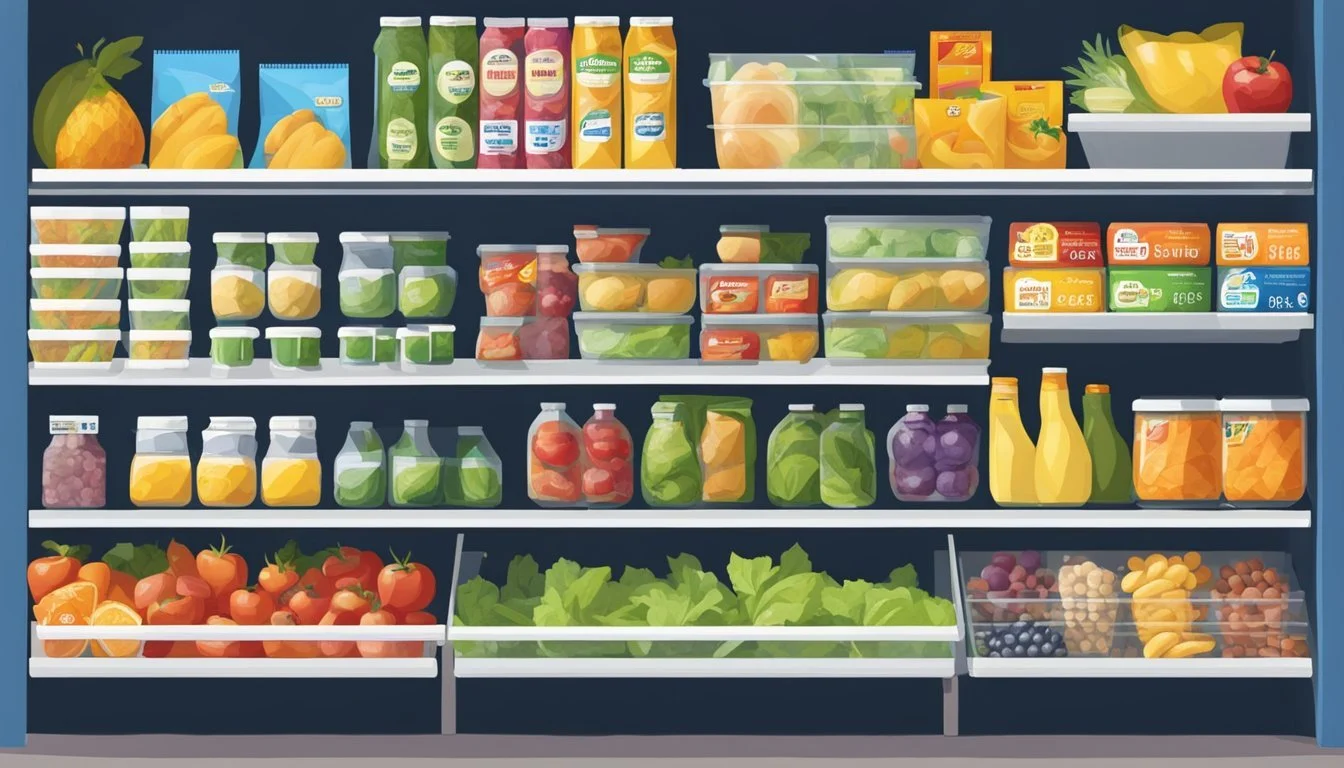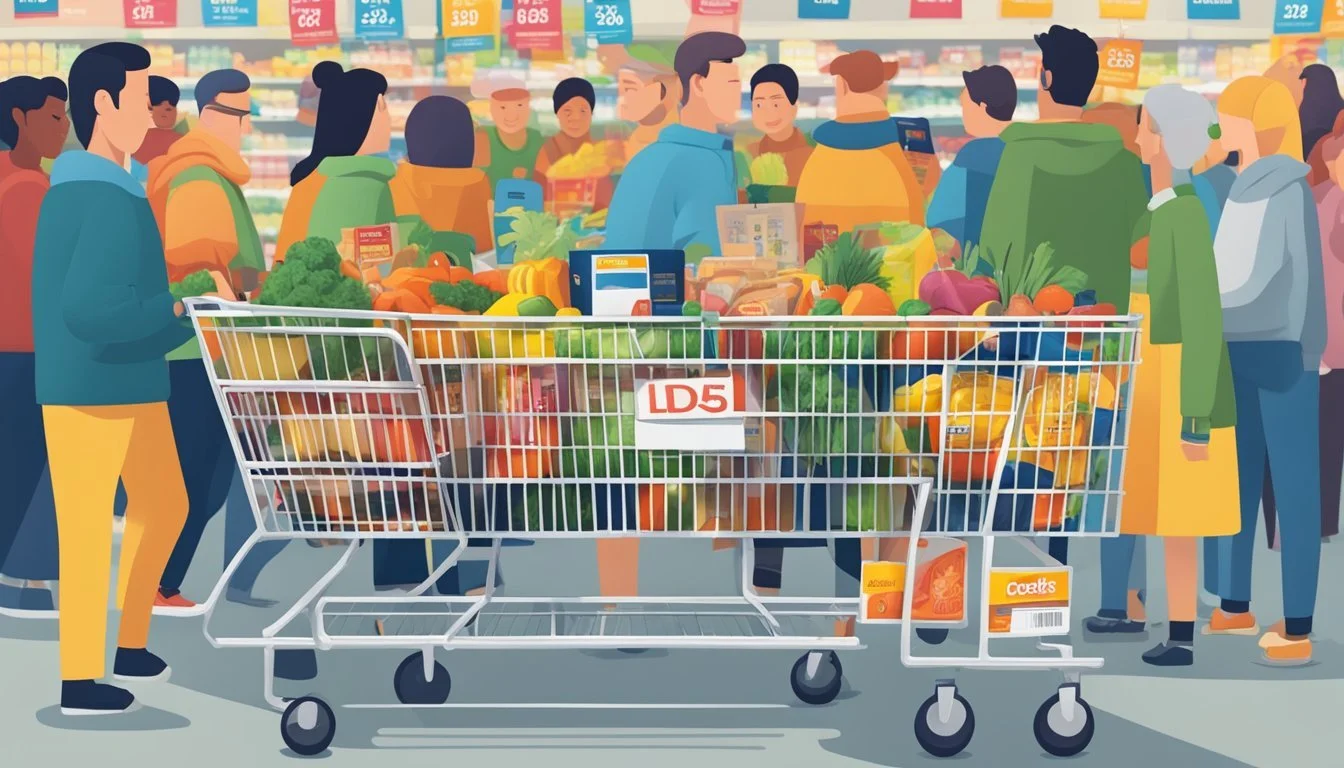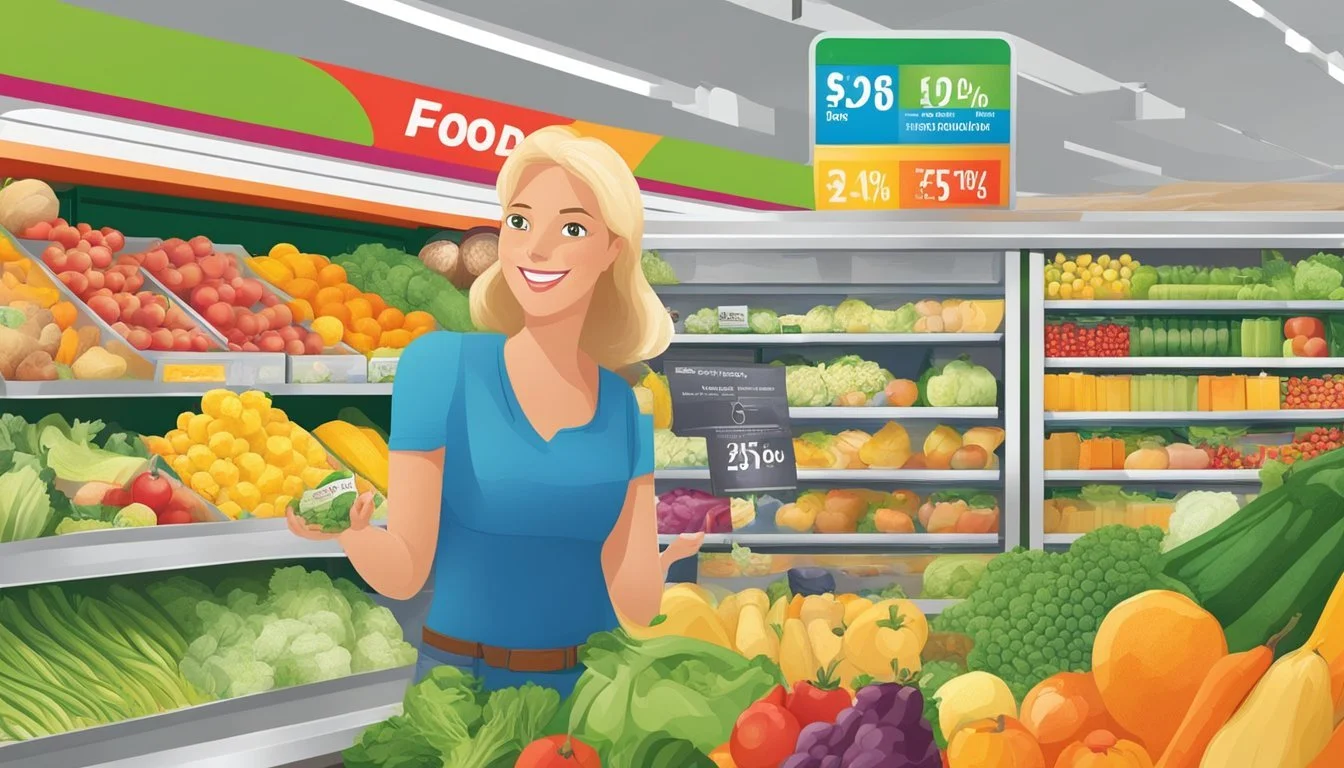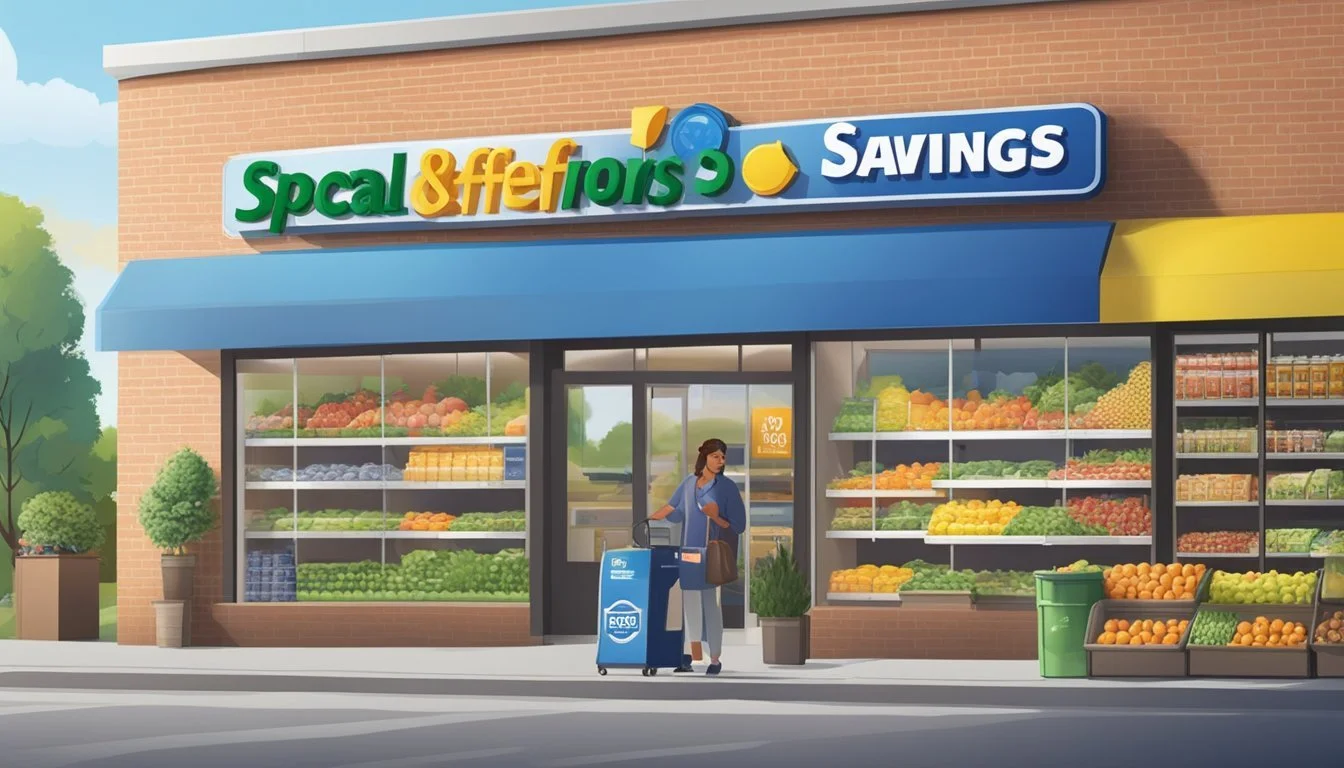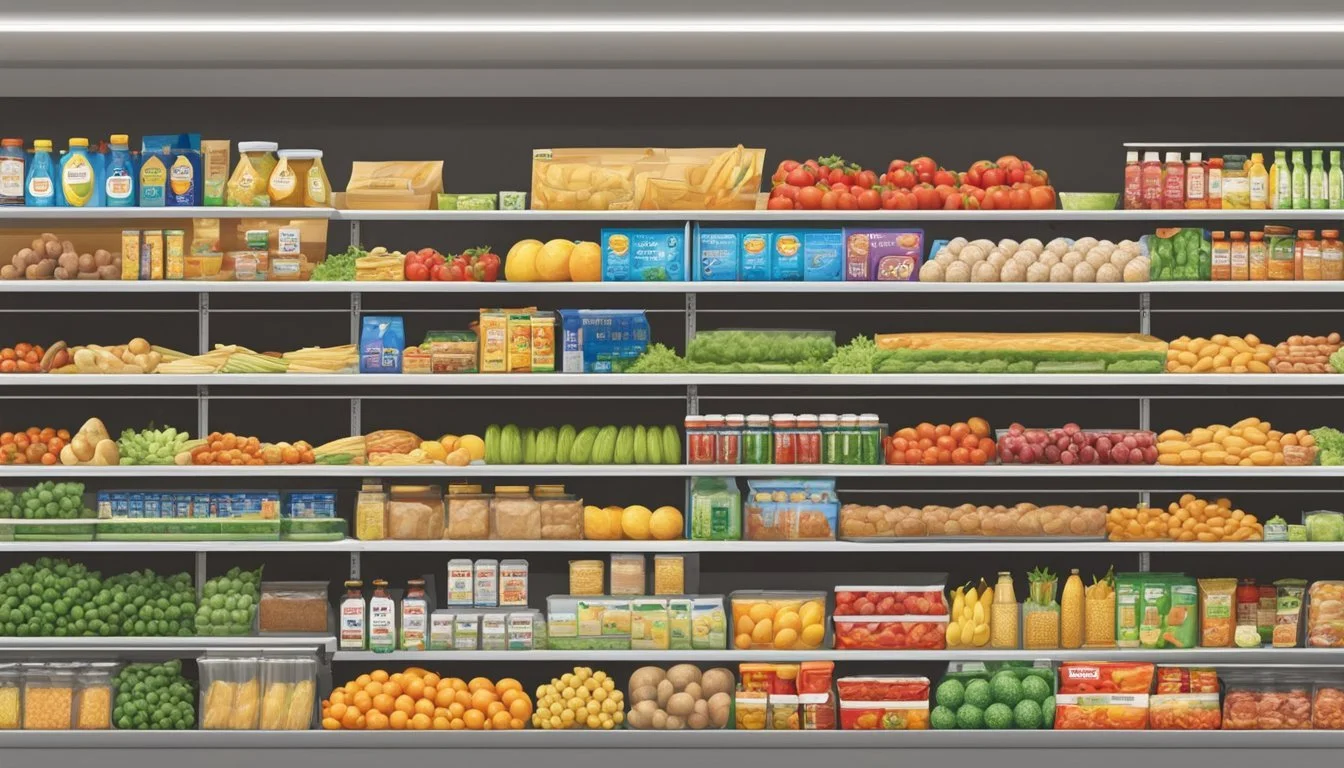Is FoodMaxx Cheaper Than Lidl?
A Price Comparison of Budget Grocery Stores
FoodMaxx and Lidl are both known for offering low prices on groceries. These discount grocery chains aim to provide affordable options for budget-conscious shoppers. While both stores strive to keep costs down, their pricing strategies and product selections can differ.
FoodMaxx tends to be slightly cheaper overall compared to other discount chains, especially for dry goods. This pricing advantage extends to various categories, including meat, dairy, and produce. FoodMaxx often achieves these lower prices through a no-frills shopping experience and by focusing on a mix of national brands and private label products.
Lidl, a relative newcomer to the U.S. market, also emphasizes competitive pricing. The German-based retailer brings its European-style discount model to American consumers. Lidl's approach includes a smaller store footprint, a curated selection of products, and a significant emphasis on private label offerings. These factors allow Lidl to maintain low prices across many product categories.
Comparing FoodMaxx and Lidl: An Overview
FoodMaxx and Lidl are both known for offering low prices on groceries. As discount supermarkets, they attract budget-conscious shoppers looking to save money on their weekly shopping trips.
FoodMaxx operates primarily in the western United States, while Lidl has a larger presence in Europe and is expanding in the US. Both stores focus on providing affordable options across various product categories.
Price comparisons between FoodMaxx and Lidl can vary depending on location and specific items. Generally, both stores offer competitive prices on staples like milk, eggs, bread, and produce.
Key similarities:
Focus on low prices
Limited brand selection
No-frills store layouts
Key differences:
Store locations (FoodMaxx more regional, Lidl more widespread)
Product selection (Lidl often carries more European products)
Store-brand offerings
Shoppers may find deals at both stores, but prices can fluctuate. It's worth comparing specific items to determine which store offers better value for individual needs.
Both FoodMaxx and Lidl employ cost-cutting strategies to keep prices low. These include limited store sizes, fewer staff, and a focus on private-label products.
Ultimately, the choice between FoodMaxx and Lidl may depend on factors beyond just price, such as store location, product availability, and personal preferences.
Price Comparison Methodology
Comparing prices between FoodMaxx and Lidl requires a systematic approach. This involves analyzing special offers and calculating average prices across a range of products.
Analysis of Grocery Deals
FoodMaxx and Lidl frequently offer special deals and promotions. These can significantly impact overall grocery costs. To accurately compare prices, it's essential to track these deals over time.
Weekly circulars and in-store specials are monitored for both chains. This helps identify patterns in discounting strategies. Seasonal promotions and loyalty program offers are also factored in.
The frequency and depth of discounts are recorded. This data is used to calculate the average savings customers can expect from each store's promotional activities.
Average Pricing Approach
To determine which store is generally cheaper, a basket of common grocery items is selected. This typically includes staples like milk, bread, eggs, and produce.
Prices for these items are collected regularly over several weeks. This helps account for price fluctuations and short-term promotions.
The data is then averaged to provide a more accurate representation of typical costs. This method smooths out temporary price drops or spikes that could skew results.
Store-brand products are compared separately from name brands. This gives insight into potential savings from choosing generic options at each retailer.
Product Selection and Availability
FoodMaxx and Lidl offer diverse product selections, catering to different customer needs. Both stores focus on providing affordable options across various food categories.
Produce Section Analysis
FoodMaxx's produce section features a wide array of fresh fruits and vegetables. The store emphasizes local and seasonal produce when available. Lidl, on the other hand, offers a curated selection of produce with a mix of conventional and organic options.
Both stores maintain competitive pricing on staple items like apples, bananas, and potatoes. FoodMaxx often has larger bulk quantities available, while Lidl focuses on pre-packaged produce for convenience.
Quality can vary between locations, but both chains strive to maintain freshness standards. Lidl's produce section is typically smaller but well-organized, making it easy for shoppers to find what they need quickly.
Assortment of Meats
FoodMaxx provides an extensive meat selection, including beef, pork, chicken, and seafood. The store offers both value cuts and premium options to suit different budgets. Lidl's meat department is more compact but still covers essential proteins.
Both stores carry fresh and frozen meat products. FoodMaxx often has larger family-size packages, while Lidl focuses on smaller portions suited for individuals or small households. Lidl occasionally features specialty meats as part of their rotating stock.
Quality-wise, both chains maintain food safety standards. FoodMaxx may have a broader selection of marinated or seasoned meats, while Lidl emphasizes its fresh meat offerings.
Dairy Section Offerings
The dairy sections at FoodMaxx and Lidl stock essentials like milk, cheese, and yogurt. FoodMaxx typically offers a wider variety of brands and package sizes. Lidl focuses on its own private label dairy products alongside a few national brands.
Both stores carry lactose-free and plant-based alternatives. FoodMaxx may have a larger selection of specialty cheeses, while Lidl rotates its cheese offerings regularly, often featuring European varieties.
Pricing on staple items like milk and eggs is competitive at both stores. FoodMaxx might have more options for bulk purchases, while Lidl's dairy section is designed for efficiency and quick shopping.
Dry Goods and Canned Goods
FoodMaxx boasts a large selection of dry and canned goods, including various beans, pasta, rice, and soups. The store offers multiple brands and package sizes for most items. Lidl's dry goods section is more streamlined but covers essential pantry staples.
Both stores stock popular items like peanut butter and canned vegetables. FoodMaxx may have a wider range of international products, while Lidl focuses on its own brand alongside select name brands.
Pricing is competitive at both chains for these non-perishable items. FoodMaxx often has larger package sizes available, which can be cost-effective for some shoppers. Lidl's selection, while smaller, is carefully curated to meet most household needs.
Frozen Foods Assortment
The frozen food sections at FoodMaxx and Lidl offer a range of convenient meal options and ingredients. FoodMaxx typically has a larger freezer section with more variety in brands and products. Lidl's frozen foods are predominantly their own brand, with a focus on quality and value.
Both stores stock frozen vegetables, fruits, pizzas, and ready-made meals. FoodMaxx may have a wider selection of ice cream and frozen desserts. Lidl often features unique frozen products as part of their limited-time special buys.
FoodMaxx's larger selection caters to diverse tastes and dietary needs. Lidl's frozen section, while smaller, is well-organized and easy to navigate. Both stores maintain competitive pricing on frozen items, with frequent promotions and deals.
Price Breakdown by Category
FoodMaxx and Lidl offer competitive pricing across various product categories. Their pricing strategies differ in key areas, affecting overall savings for shoppers.
Fruits and Vegetables
FoodMaxx provides a wide selection of fresh produce at budget-friendly prices. Their fruits and vegetables are often sourced locally, resulting in competitive pricing.
Lidl, on the other hand, offers a curated selection of produce with an emphasis on seasonal items. Their fruit and vegetable prices tend to be slightly lower than FoodMaxx, especially for in-season items.
Both stores feature weekly produce specials, but Lidl's deals are generally more aggressive.
Deli and Bakery
FoodMaxx's deli section offers a variety of meats and cheeses at reasonable prices. Their bakery items are competitively priced, with a focus on basic bread and pastries.
Lidl's deli and bakery departments shine with lower prices and a wider selection. Their in-store bakery produces fresh bread and pastries daily at very competitive rates.
Lidl's cheese selection is particularly noteworthy, offering imported varieties at prices lower than FoodMaxx.
Staple Foods
For pantry essentials, FoodMaxx provides a broad range of options at value prices. Their store-brand items offer significant savings compared to name brands.
Lidl's staple foods are priced slightly lower than FoodMaxx. Their private label products are often cheaper and of comparable quality to national brands.
Milk and eggs are typically less expensive at Lidl. However, FoodMaxx occasionally offers better deals on these items during promotions.
Household Essentials
FoodMaxx carries a wide range of household items at competitive prices. Their selection includes cleaning supplies, paper products, and personal care items.
Lidl's household essentials are generally priced lower than FoodMaxx. They offer a smaller selection but focus on high-quality, cost-effective options.
Both stores provide good value on laundry detergents and dish soaps. Lidl's prices for these items are usually slightly lower than FoodMaxx's.
Healthy and Organic Options
FoodMaxx and Lidl both offer healthy and organic options, catering to health-conscious consumers. Their product ranges include organic produce, nutritious snacks, and wholesome meal ingredients.
Organic Product Prices
FoodMaxx provides a selection of organic fruits and vegetables at competitive prices. Their organic apples typically cost $2.99 per pound, while organic carrots are priced at $1.49 per bunch. Lidl, on the other hand, offers organic produce at prices approximately 10% lower than some competitors. Organic milk at Lidl is $3.49 per half-gallon, compared to $3.98 at other stores. Lidl's organic yogurt costs $0.89 per cup, making it an affordable option for those seeking dairy alternatives.
Both stores stock organic grains and legumes. FoodMaxx sells organic quinoa for $3.99 per pound, while Lidl offers organic brown rice at $2.49 per pound. These prices allow customers to incorporate nutritious, organic staples into their diets without breaking the bank.
Healthy Snack Alternatives
FoodMaxx and Lidl recognize the growing demand for healthier snack options. FoodMaxx stocks a variety of nuts and dried fruits, with raw almonds priced at $5.99 per pound and unsweetened dried mango at $3.49 for a 6-ounce bag. Lidl's snack selection includes their own-brand hummus for $1 per container, providing a protein-rich option for health-conscious shoppers.
Both stores offer whole grain crackers and rice cakes as alternatives to traditional chips. FoodMaxx sells multi-grain crackers for $2.49 per box, while Lidl's rice cakes are priced at $1.29 per pack. For those with a sweet tooth, FoodMaxx stocks organic dark chocolate bars for $2.99 each, and Lidl offers Greek yogurt with honey for $0.99 per cup.
Budgeting for a Family
Creating a grocery budget for a family requires careful planning and strategic shopping. By focusing on cost-effective meal planning and curating affordable shopping lists, families can significantly reduce their food expenses.
Cost-Effective Meal Planning
Meal planning is a crucial step in managing family grocery expenses. Start by creating a weekly menu that incorporates affordable ingredients and minimizes food waste. Utilize leftovers creatively to stretch meals further. Consider batch cooking and freezing portions for future use.
Incorporate budget-friendly protein sources like beans, eggs, and chicken into your meal plan. Opt for seasonal fruits and vegetables to keep costs down. Plan for meatless meals once or twice a week to reduce spending on pricier proteins.
Balance convenience with cost by preparing some items from scratch. Homemade snacks and baked goods are often cheaper than store-bought alternatives.
Affordable Shopping List Suggestions
Craft a shopping list based on your meal plan to avoid impulse purchases. Focus on versatile, staple ingredients that can be used in multiple dishes. Buy in bulk for non-perishable items and frequently used products when they're on sale.
Look for store brand or generic alternatives to name-brand products. These often offer similar quality at a lower price point. Compare unit prices to ensure you're getting the best value for your money.
Include affordable protein sources:
Eggs
Canned tuna or salmon
Beans and lentils
Whole chickens
Stock up on budget-friendly staples:
Rice
Pasta
Potatoes
Onions
Carrots
Don't forget to check for sales and use coupons when available. Consider shopping at discount grocery stores like FoodMaxx or Lidl for additional savings on your family's groceries.
Special Offers and Savings Programs
FoodMaxx and Lidl both provide various ways for customers to save money on groceries. FoodMaxx offers "Special" deals, which are limited-time promotional prices on select items. These specials can lead to significant savings on everyday products.
Lidl features weekly specials that rotate regularly, allowing shoppers to find discounts on different items each week. The store also runs occasional themed promotions, such as "Italian Week" or "American Week," offering deals on specialty products.
Both retailers have digital coupon programs. FoodMaxx allows customers to clip digital coupons and save them to their account for use at checkout. Lidl's app provides digital coupons and exclusive offers to members.
Loyalty programs are another savings avenue. While FoodMaxx doesn't have a traditional loyalty card, they offer digital coupons that function similarly. Lidl's myLidl program rewards frequent shoppers with personalized coupons and special discounts.
Seasonal sales are common at both stores. During major holidays, shoppers can find deep discounts on relevant items. FoodMaxx and Lidl also offer clearance sections where products nearing expiration dates are marked down significantly.
By taking advantage of these various savings programs, customers can potentially reduce their grocery bills at both FoodMaxx and Lidl. The effectiveness of these programs may vary depending on individual shopping habits and preferences.
Consumer Shopping Experience
FoodMaxx and Lidl offer distinct shopping environments, each with its own approach to store design and customer interaction. These differences can significantly impact the overall experience for shoppers.
Store Layout and Navigation
FoodMaxx typically features a warehouse-style layout with wide aisles and bulk displays. Products are often stocked directly on pallets or in large bins, emphasizing a no-frills approach. This setup can make finding specific items more challenging but allows for easy browsing of discounted goods.
Lidl, in contrast, employs a more traditional supermarket layout. Stores are generally smaller than FoodMaxx, with clearly defined sections for produce, bakery, and general groceries. Lidl's aisles are often narrower but well-organized, facilitating efficient shopping trips.
Both chains use prominent signage to highlight weekly deals. Lidl rotates its central aisle merchandise regularly, offering non-food items like clothing and household goods.
Customer Service
FoodMaxx operates on a self-service model. Cashiers are available at checkout, but floor staff is minimal. This approach keeps costs down but may frustrate shoppers seeking assistance.
Lidl provides a middle ground between discount and full-service stores. Staff members are typically present on the floor, though less numerous than in traditional supermarkets. Lidl's employees are often cross-trained to handle multiple roles, improving efficiency.
Both chains prioritize quick checkout experiences. FoodMaxx often uses conveyor belt systems for larger purchases. Lidl features efficient checkout processes with cashiers trained to scan items rapidly.
Convenience and Location
FoodMaxx and Lidl offer different convenience factors based on their store locations and distribution. FoodMaxx primarily operates in the western United States, with a strong presence in California.
Lidl, on the other hand, has expanded across the eastern and southern regions of the country. This geographic distribution affects accessibility for shoppers in different areas.
Store layouts also impact convenience. FoodMaxx typically features larger stores with wide aisles and a warehouse-style setup. Lidl stores are often more compact, with a streamlined design.
Both chains prioritize efficiency in their checkout processes. FoodMaxx usually offers multiple checkout lanes, while Lidl emphasizes quick service with fewer, but fast-moving lines.
Parking availability can vary by location for both retailers. FoodMaxx stores often have spacious parking lots due to their larger footprint. Lidl locations may have more limited parking in some urban areas.
Operating hours differ between the two chains. FoodMaxx stores generally maintain longer hours, opening early and closing late. Lidl locations tend to have more standardized hours across their network.
Online shopping options add another layer of convenience. Both retailers have invested in digital platforms, allowing customers to browse products and place orders for pickup or delivery in select areas.
Brand Reputation and Perception
FoodMaxx and Lidl have distinct brand reputations in the grocery market. FoodMaxx is known for its no-frills approach and focus on low prices. The store appeals to budget-conscious shoppers seeking affordable groceries.
Lidl, a German discount supermarket chain, has cultivated a reputation for offering high-quality products at competitive prices. The company has invested in marketing campaigns to challenge public perceptions of discount stores.
Both retailers prioritize value, but their strategies differ:
FoodMaxx: Emphasizes rock-bottom prices
Lidl: Balances affordability with product quality
Customer perceptions of these brands vary. Some view FoodMaxx as a bare-bones option for extreme savings. Others appreciate its straightforward approach to discount shopping.
Lidl has worked to position itself as a more upscale discounter. The chain's #LidlSurprises campaign aimed to highlight the quality of its products, challenging preconceptions about discount grocers.
Brand image plays a crucial role in customer choices. FoodMaxx attracts shoppers primarily focused on price. Lidl appeals to those seeking a balance between cost savings and product quality.
Both chains face the challenge of overcoming negative stereotypes associated with discount stores. Their success depends on effectively communicating their value propositions to target consumers.
Conclusion: Which Store Offers Better Value?
FoodMaxx and Lidl both provide competitive pricing for budget-conscious shoppers. FoodMaxx has proven to offer lower prices on many items compared to other major grocery chains in the US.
Lidl, while a relatively newer entrant to the American market, has quickly established itself as a strong competitor in the discount grocery space. The chain is known for its high-quality store brands and efficient store layouts.
When comparing the two, FoodMaxx may have a slight edge in terms of overall affordability. However, Lidl often provides better quality for the price, especially in categories like produce and prepared foods.
The choice between FoodMaxx and Lidl ultimately depends on individual preferences and shopping needs. FoodMaxx may be preferable for those prioritizing the lowest possible prices across a wide range of products.
Lidl could be the better option for shoppers who value a balance of affordability and quality, particularly in fresh and specialty items. Both stores offer significant savings compared to traditional supermarkets, making either a solid choice for value-oriented consumers.


